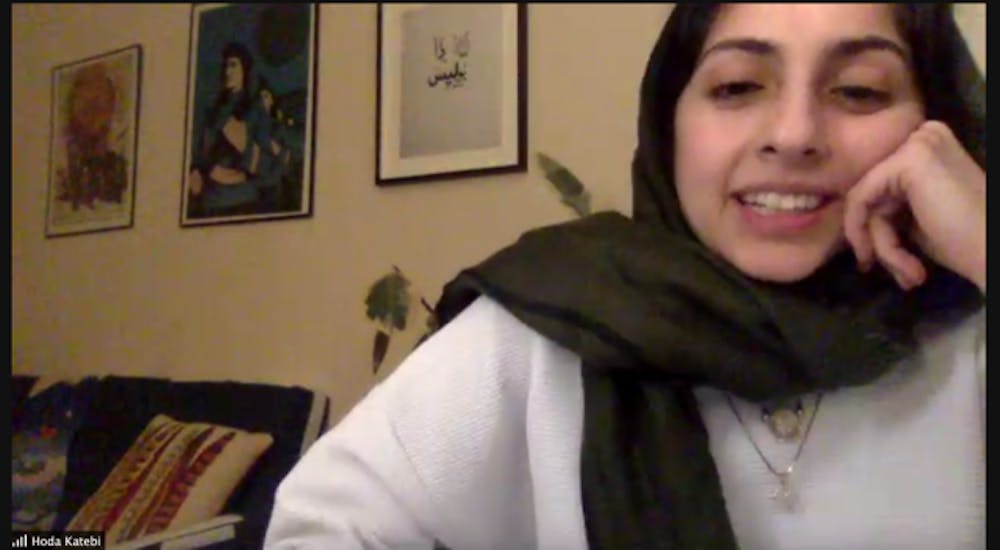The Muslim Student Association and AUSG Women’s Initiative co-hosted a virtual event Wednesday night where activist and organizer Hoda Katebi spoke about fast fashion, a business model that relies on producing large quantities of clothing quickly and at a low cost.
Presenting her points on a slide show, Katebi discussed problems with fast fashion, including the use of sweatshops and the inherent violence within the industry, which she said makes reform a difficult solution.
“Everything [in fast fashion] revolves around efficiency to get more product out of the door faster,” Katebi said. “So basically, as a result, fast fashion environments are created that require violence in order to operate.”
Katebi, who hosts an international digital book club, #BecauseWe’veRead, founded a co-operative apparel manufacturer, Blue Tin Production. She’s also an organizer with a community bail fund called Believers Bail Out.
Katebi coined the term “revolution-washing,” which she referenced in the event. “Revolution-washing” is, in Katebi’s mind, when mainstream fashion brands claim to have conscious, sustainable products in order to attract progressive consumers, but in reality, do not follow ethical practices.
Katebi emphasized the difference between what she deemed environmentally sustainable and ethical business practices by fashion brands, saying that “sustainable clothes can still be made in a sweatshop.”
Katebi describes herself as an abolitionist regarding the fast fashion industry, and outlined what she imagines abolishing the industry will look like.
“Abolition is as much the destruction of industries, or things, or entities, that require violence in this way, as it is being able to take a step back and imagine what that could look like in its place,” Katebi said. “It’s also reimagining the ways that fashion is created. It’s also asking, and unlearning, what’s normalized in fast fashion.”
Katebi also described the struggles she has noticed in the fashion industry due to the coronavirus pandemic, particularly at Blue Tin Production.
“The fashion industry was hit tremendously hard [by coronavirus], and no one gives a damn about garment workers, let alone know that they exist,” Katebi said. “So, obviously COVID hit our team pretty intensely.”
MSA planned an in-person event with Katebi for the spring semester of 2020, which was disrupted by the pandemic, according to Momal Rizvi, the advocacy chair of MSA. After losing connection for a while, the group replanned the event to be held virtually this semester.
Rizvi said she felt that MSA was often expected to talk about certain issues specific to Muslim faith and Muslim-majority countries, and thought this event with Katebi would show that MSA shouldn’t be limited in what topics it can talk about.
Kiran Waqar, the co-president of MSA, highlighted Katebi’s creativity, abolitionist work, wholeness of self, and use of faith and values to drive her work, as what attracted the group to her.
“Part of what I hope to see out of this event is the ways we can see ourselves in her,” Waqar said before the event. “And so part of the reason to bring Hoda Katebi is to show that there's a world outside of AU, there's organizing outside of AU.”
When considering what everyday consumers can do to contribute to sustainable shopping, Katebi said it’s important for individuals to reevaluate their relationship to consumption and determine whether they need to buy the amount of clothes they do.
“We should understand that hands have threaded every single piece that has composed your shirts or pants,” Katebi said. “So I think being able to value clothes is something that sounds very basic, but we don't think about how much labor and how intimate this process of production is.”





